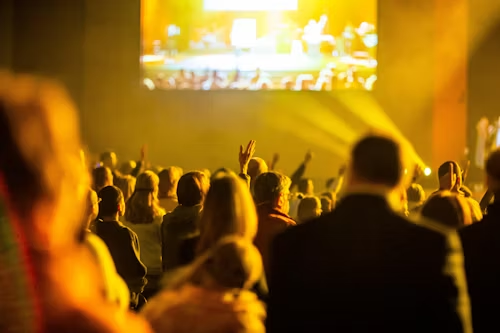Entertainment has always been more than just a way to pass time — it reflects who we are, how we live, and what we value. As technology has evolved, so has the way we consume and create content. From gathering around fires to binge-watching on our phones, this journey tells the story of us.
Entertainment Reflects the Times
Entertainment has always been a mirror of society, reflecting the values, fears, and dreams of the time. As technology advances, so too does the way we engage with stories and performances. What was once confined to physical spaces and scheduled events has now expanded into a digital realm where time and place no longer limit access. From ancient Greek plays to modern-day streaming marathons, entertainment continuously adapts to our changing lives.
The Power of Live Performance
In ancient cultures, entertainment was a communal event. People would gather in large theaters or open-air venues to watch performances that were often larger-than-life. The energy of the audience was just as important as the performance itself, with actors and performers feeding off the crowd's reactions. These early forms of entertainment were deeply personal and tied to a sense of community, as people bonded over shared experiences.
With the invention of cinema in the early 20th century, the way we experienced performance shifted. Movies allowed stories to be captured and distributed across vast distances. The collective experience of watching a play with a group gave way to the more individualized experience of sitting in front of a screen. Over time, television brought similar experiences into homes, making entertainment more accessible and convenient.
The Rise of Cinema and Television
The arrival of cinema in the early 1900s introduced the world to the concept of "storytelling through film." The magic of the silver screen transported audiences to different worlds and allowed them to experience emotions, history, and fantasy in a way never before possible. Soon after, the television brought cinema into the home. People could now gather around the TV to watch scheduled broadcasts, enjoy family programming, or tune into the evening news. Television became the cornerstone of home entertainment for several decades, and television icons became household names.
The impact of cinema and television wasn't just on entertainment; it changed culture itself. Movies shaped how we saw the world, and television brought global events into the living room. The rise of blockbuster movies and primetime television became part of the fabric of daily life, creating shared cultural moments across the globe.
The Internet Revolution
However, with the rise of the internet in the late 20th century, the rules of the entertainment game changed drastically. Suddenly, people had access to endless content — from movies and television shows to user-generated content, all available at the touch of a button. YouTube, for example, transformed the way we consume and create entertainment. Individuals could upload videos, share stories, and gain fame without ever needing to step foot in front of a traditional camera crew.
Streaming platforms like Netflix, Amazon Prime, and Spotify began offering on-demand content, giving users the power to watch what they want, when they want. No longer was entertainment bound by cable schedules or movie theater showtimes. Social media also played a huge role in reshaping the entertainment industry. Platforms like Instagram, TikTok, and Twitter allowed people to become content creators themselves. This democratization of content creation blurred the line between consumers and producers.
The New Forms of Entertainment
The definition of entertainment has expanded drastically. While movies, TV shows, and live performances still hold a central place, new forms of media have entered the spotlight. Podcasts have gained enormous popularity, offering everything from true crime stories to deep dives into current events. Streaming platforms now host live video game streams, allowing audiences to watch others play games, interact with streamers, and even compete in esports tournaments.
Virtual reality (VR) and augmented reality (AR) are pushing the boundaries of immersive entertainment. Virtual concerts, VR gaming, and AR-driven apps are creating entirely new ways for people to experience entertainment. Meanwhile, memes and viral videos have become a form of entertainment in their own right, shaping internet culture and providing humor in the digital age.
What Comes Next?
Looking forward, the future of entertainment may be shaped by even more groundbreaking technologies. Artificial intelligence (AI) is beginning to play a significant role in content creation, from AI-generated scripts to deepfake technology and virtual influencers. These advances could revolutionize how we produce and interact with entertainment in the coming decades.
Immersive entertainment experiences, powered by AR/VR, may soon become the norm, allowing audiences to engage in entertainment in ways previously reserved for science fiction. Imagine attending a live concert in a virtual space or experiencing a movie where you are part of the storyline, interacting with characters and altering the plot.
The Ever-Evolving Nature of Entertainment
Entertainment is in a constant state of evolution. It reflects not just our technological advancements, but our changing desires, fears, and identities. As new forms of media continue to emerge, we are likely to see even more shifts in how entertainment influences society. What's clear is that entertainment will continue to evolve alongside us — a mirror, a mirror to who we are, where we've been, and where we're going.




